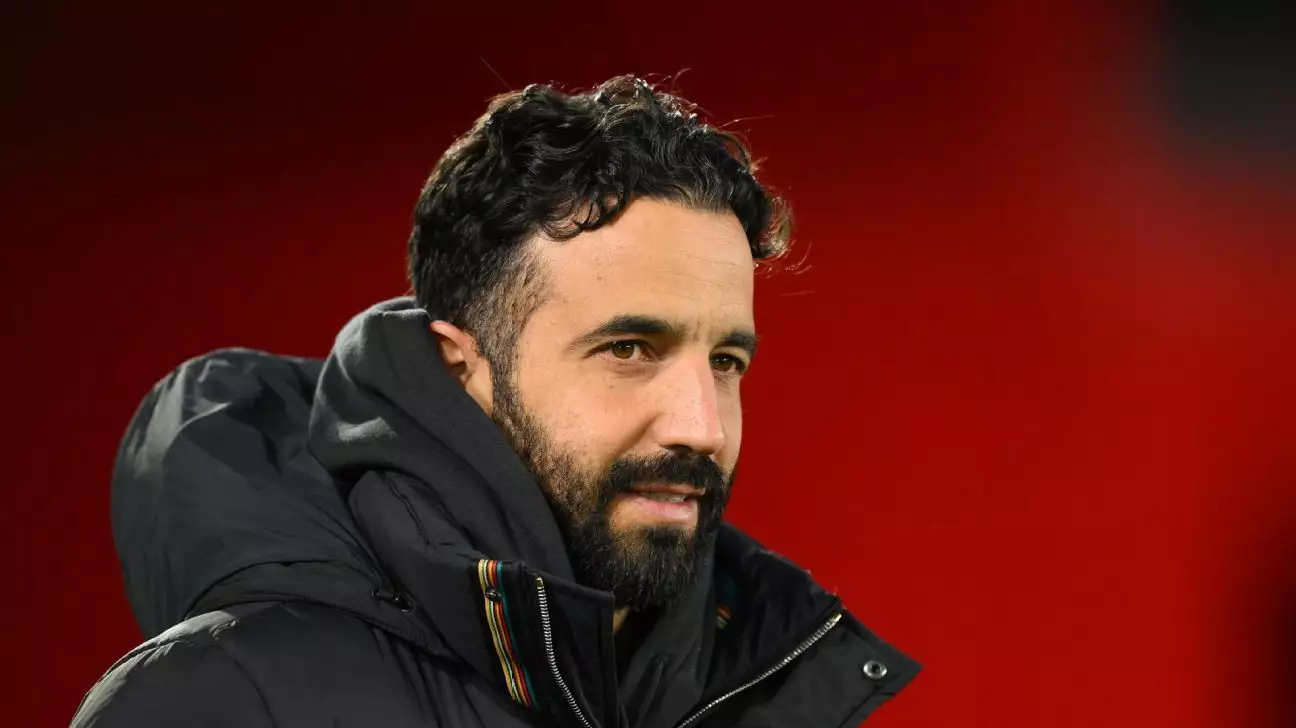When Ruben Amorim took the reins at Manchester United amid a storm of discontent and diminishing results, he didn’t just step into the role of head coach—he ventured into one of football’s most iconic yet troubled environments. With a dismal record following Erik ten Hag’s departure, Amorim faced a daunting task: revitalizing a team laden with expectations yet burdened by underperformance. Yet, as he openly admits, there are no regrets for seizing this opportunity, showcasing both his commitment and a mindset aimed at fostering long-term growth.
The reality is that Amorim’s initiation into the Premier League has been anything but smooth. The Portuguese manager has chalked up mere six victories, leading the club toward a potentially catastrophic finish. The present situation echoes sentiments from United’s past—when low points in the club’s history sent ripples of concern throughout its vast fanbase. Amorim’s candid discussion during recent press events reveals a deeper philosophical stance regarding immediate results versus foundational progress. His decision to accept the role mid-season carries implications beyond the present, emphasizing a belief in the club’s enduring stature and future potential.
Reassessing Timing and Direction
Reflecting on his mid-season appointment, Amorim’s admission of potential doubt clarifies the weight of the decisions made. He speculated that a more strategic delay until summer might have served both him and the club better. This uncertainty accentuates a critical aspect of managerial roles in elite football: the urgency to stabilize a rapidly spiraling situation while simultaneously laying groundwork for change. Indeed, Amorim’s foresight is commendable when he considers how adapting his approach to the current climate could pave the way for sustainable recovery.
As the season winds down with just five matches left, the prospect of relegation looms ominously. However, Amorim’s emphasis on long-term objectives over short-term gains highlights his willingness to endure hardship now for future success. It’s a mindset that contrasts sharply with many football managers who might prioritize immediate wins to save their jobs. Rather than allowing the pressure to divert his focus, Amorim appears determined to gain insights that will be invaluable moving ahead. This contrasts with the often myopic nature of football, where the demands of each match overload the broader vision for progress.
Risks and Rebuilding: A Strategic Gamble
Amorim also took several calculated risks in the recent transfer window that could initially raise eyebrows. Allowing key players like Marcus Rashford and Antony to leave underscores a remarkable commitment to reshaping the squad, despite the inherent dangers of immediate detrimental impacts. It’s a gamble that encapsulates his strategic thinking—focusing more on the reformation of a team culture and style rather than merely trying to patch up current shortcomings.
By prioritizing a long-term vision, Amorim is not only smoothing the path for tactical alignment but also promoting resilience within the squad. While fans rightfully question the wisdom of letting go of proven talent, the notion of creating a robust framework that can withstand future trials is what sets his philosophy apart. Contrast this with the lamentable and reactive approaches often seen when clubs prioritize piecemeal solutions, which tend to create more discord than harmony.
Hope Amid Adversity: The Power of Perspective
In Amorim’s eyes, the plight United is currently facing may indeed be a crucible for future strength. His ability to maintain such an optimistic outlook indicates a spirited belief in the potential transformation of the club—a notion that could inspire a beleaguered fan base seeking solace in moments of hardship. United’s challenges resonate across the football landscape; even great clubs stumble, highlighting the importance of patience, vision, and unwavering resolve.
As both fans and critics watch how United navigates this turbulent chapter, Amorim’s narrative of resilience may cultivate a renewed belief in the club’s potential to rise stronger. While the current landscape is fraught with difficulty, the alignment of Amorim’s strategic daring, alongside a steadfast commitment to Manchester United’s heritage, may just be what the club needs to reclaim its rightful stature in football’s hierarchy. The stage is set for transformation, and perhaps Amorim’s tenure at Old Trafford is not merely a bridge over troubled waters but the beginning of an era defined by growth and renewal.

